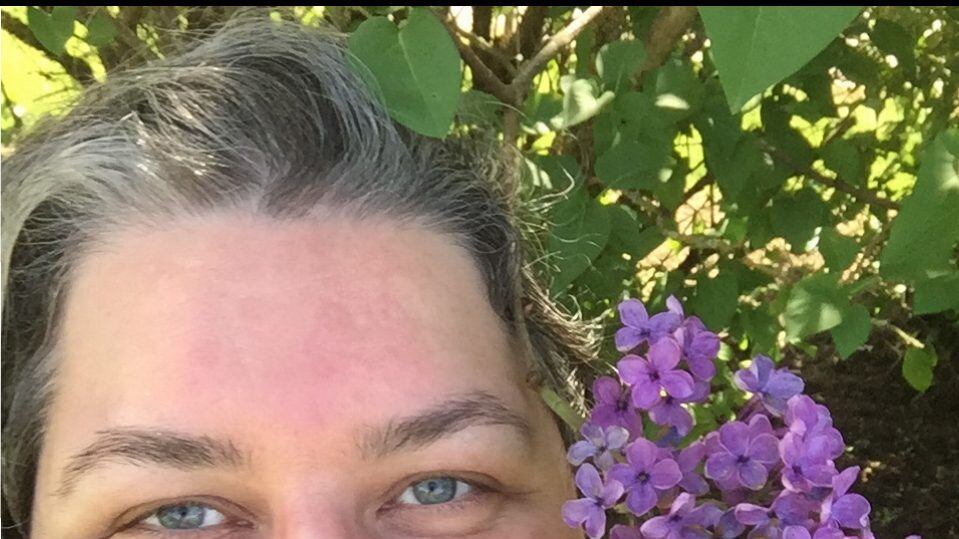Since the start of quarantine, the internet has been flooded with social media posts and articles disparaging weight gain during the pandemic, birthing the term "the Quarantine 15."
According to Dr. DeAun Nelson, those posts and articles aren't helping anyone.
"Quarantine 15—I hate that term," says Nelson, a Portland naturopathic doctor and educator, about weight inclusivity in medicine and the host of the podcast Do No Harm, which is about removing weight stigma from health care. "It's OK if you gain a little weight."
When people feel desperate for a sense of control over their life, a diet can feel like an answer.
"We have the expectation that we have control over all our health," says Nelson. "Weight is certainly something that people assume that everyone has complete control over and could be put in a 'normal' [Body Mass Index] category if they just tried hard enough. That's not accurate and that's not real."
It's a difficult conversation to broach because it initially seems counter to much of what we've been taught. Public health messaging often lacks nuance, and conversations about fully divesting from diet culture require a lot of nuance. Plus, it requires unraveling assumptions created by classism, medicalized racism, and misconceptions about mental health.
But the idea that weight isn't the best indicator of health is backed by a growing body of research, and slowly gaining mainstream recognition.
"People come in a wide range of bodies," Nelson says. "If everyone is given wider access to taking care of those bodies, we would all be better off."
As something of a crash course in health without weight loss, we asked Nelson about the biggest misconceptions around weight and health, and why you shouldn't worry about the Quarantine 15.
1. It’s normal to gain weight during a global crisis.
Quarantine has altered entire lives, including exercise and eating habits. Stress can also lead to weight gain or weight loss. "With all the things that have been going on in 2020, everyone's body is going to respond a little differently," says Nelson. "Recognizing that everyone's body feels the stress a little differently and saying, 'I might gain a little weight, I might lose a little weight, I might stay the same, I'm not sure. I'm not worrying about the weight so much, I'm worrying about the things I do have the capacity for to take care of myself.'"
Many of us are also struggling to take care of ourselves, dealing with exacerbated mental health problems or extra financial insecurity. "A lot of us in the regular world do have a lot of capacity to do a lot of stuff every day," she says. "Most of us just don't have that. We have other worries that are taking much more space in our brains, and so being able to recognize this is the capacity I have."
2. Weight is not the best way to determine health.
“Weight is not a significant health indicator,” says Nelson. “Even when we see weight change due to behaviors, very often when we look at it, it is the behaviors that are making the health changes, not the weight itself. There’s certainly people who make health changes whose health improves but their weight doesn’t change, and there’s some people who can gain weight and actually be healthier.”
Getting rid of the stigma around weight is part of public health in and of itself. "Definitely, systematically, we have issues with people with larger bodies, and we have expectations and assumptions that we make around those folks, and that does directly affect the health of everyone in larger bodies," says Nelson. "Having access to medical care, not being stigmatized against in that care, not being stigmatized against in jobs, things like that. Those are all things that I can't individually change, but I can get together with other individuals and start working on change."
3. Lifestyle diets are still diets.
The fact that fad diets and crash diets are unhealthy and don't lead to long-term weight loss has recently gained mainstream acceptance. Diets can lead to patterns of restrictive and binge eating and slower metabolism, essentially triggering your body's famine responses. But Nelson says that conversations about why "diets don't work" often don't include plans like keto or paleo that are branded as a "lifestyle changes" but are still concerned with weight loss.
"You kind of have to look at the lifestyle change that's being purported, especially if it's a program, and try to determine, 'Am I being told to restrict something?'" says Nelson. "Is 'healthy' being couched in a weight loss manner? Is 'feeling good' subtly indicating that I'm going to be feeling good because I'm smaller than I was before?"
"But then they can also eat the foods that are considered taboo, like sugary foods or starches, non-vegetable carbohydrates," says Nelson. "If you're eating all of that and making sure you're eating plenty of fruits and vegetables and a variety of foods, that can be a lifestyle change that's supportive of health, if you're not restricting calories and you're not trying to exercise off all your calories."
4. Eating mac and cheese at 2 am can be an act of health.
At a time when most of us are thrown off our usual routines and consumed by feelings of uncertainty, it's expected that people will latch on to any comforts they can. In a sense, eating a big bowl of mac and cheese, sugary cereal or whatever your comfort food of choice happens to be can be an act of health, especially if you haven't had the time or mental energy to eat enough throughout the day.
"It can also be anti-health," says Nelson. "It depends on why you're eating it." But mental health influences physical health, so regardless of why you're eating what you're eating, beating yourself up about it isn't going to help.
"Especially now, being able to have some self-compassion is ultimately going to be more beneficial than anything we put into our mouths," she says. "Stepping away from that perfection that a lot of us feel on a regular basis and saying, 'This is not perfect, nothing's going to be perfect, and certainly right now nothing's going to be perfect,' and being as OK with that as we can."
In 2020, Everyone Is Struggling With Mental Health. Here's Our Guide to Finding Peace.
Dr. DeAun Nelson Wants to Change How We Think About Weight and Health Care
Safer Space Looks to Create a Therapy Network Exclusively for the Black Lives Matter Movement
New Healing Collective Radical Rest Believes if You Free the Body, the Mind Will Follow

